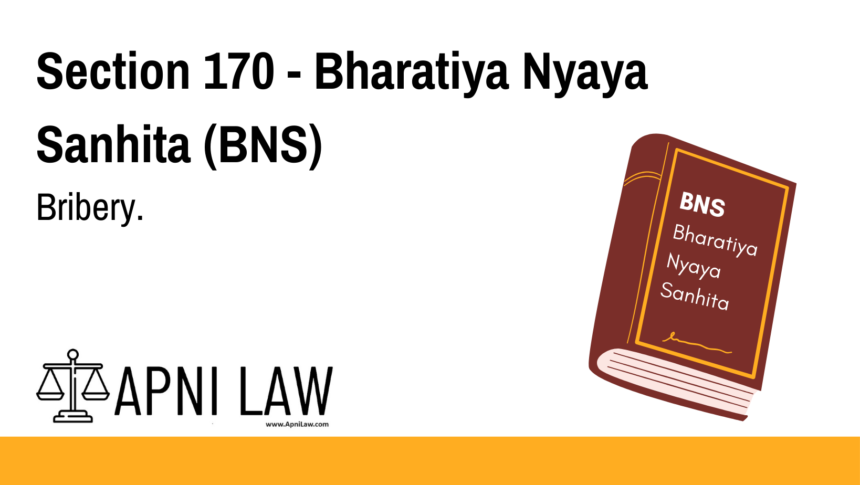Code: Section 170 BNS
(1) Whoever—
(i) gives a gratification to any person with the object of inducing him or any
other person to exercise any electoral right or of rewarding any person for having
exercised any such right; or
(ii) accepts either for himself or for any other person any gratification as a
reward for exercising any such right or for inducing or attempting to induce any other
person to exercise any such right,
commits the offence of bribery:
Provided that a declaration of public policy or a promise of public action shall not be an
offence under this section.
(2) A person who offers, or agrees to give, or offers or attempts to procure, a gratification
shall be deemed to give a gratification.
(3) A person who obtains or agrees to accept or attempts to obtain a gratification shall
be deemed to accept a gratification, and a person who accepts a gratification as a motive for
doing what he does not intend to do, or as a reward for doing what he has not done, shall be
deemed to have accepted the gratification as a reward.
Explanation of Section 170 BNS
1. What is Bribery Under Section 170 BNS?
Bribery refers to giving or accepting gratification (money, gifts, favors) to influence electoral rights. This includes:
- Giving money to voters to make them vote for a particular candidate.
- Receiving money in exchange for voting.
- Offering bribes to influence election outcomes.
2. Key Elements of Bribery
- Giving bribes to induce someone to vote in a certain way.
- Accepting bribes in exchange for exercising electoral rights.
- Attempting to give or accept bribes is also punishable.
3. Exceptions to Bribery
- Public policy declarations or promises of public action do not amount to bribery.
- Example: A political party promising better roads or free education is not bribery, but giving cash for votes is illegal.
Illustration
Example 1: Bribing a Voter
A candidate’s supporter gives ₹500 to voters in exchange for their votes. This act is bribery under Section 170 BNS.
Example 2: Accepting a Bribe for Voting
A voter accepts a free mobile phone from a political worker and votes for their candidate. This is also bribery and punishable under this section.
Example 3: Political Promises vs. Bribery
A politician promises better employment opportunities if elected. This is not bribery, as it falls under public policy declarations.
Common Questions and Answers on Section 170 BNS
1. What is considered “gratification” under Section 170 BNS?
Gratification includes money, gifts, jobs, favors, or any benefit offered to influence electoral decisions.
2. Is offering free food during elections bribery?
Yes, if the intent is to influence voting behavior, it is considered bribery.
3. Can accepting a bribe without voting be punished?
Yes, even agreeing to accept a bribe for voting is punishable under this section.
4. Are election promises considered bribery?
No, political promises about public policies do not amount to bribery unless they involve direct benefits like cash or goods.
5. What is the punishment for bribery under Section 170 BNS?
Punishment details are covered in subsequent sections related to electoral offenses.
Conclusion
Section 170 BNS ensures free and fair elections by criminalizing bribery in electoral processes. Offering, accepting, or even attempting bribery is a punishable offense.
For more legal insights, visit ApniLaw today! 🚀











